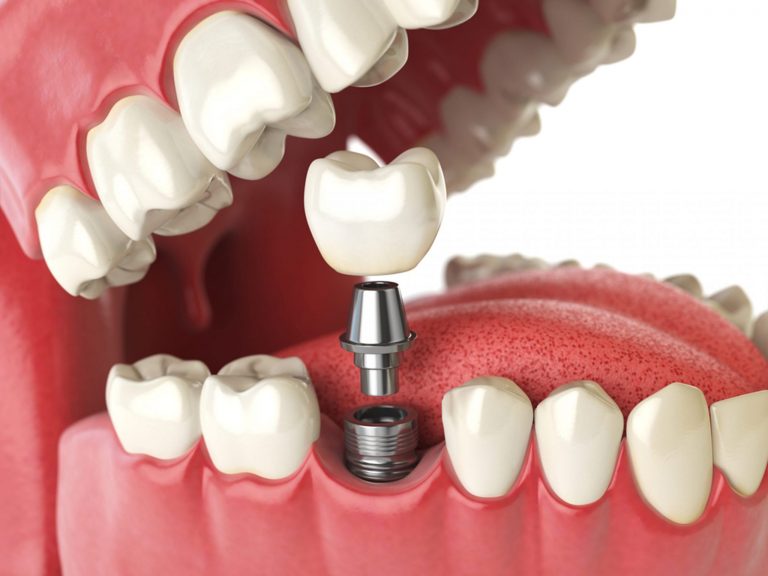March 18, 2020

Dental implants near you are a life-changing procedure. By filling the gaps in your smile, they improve your quality of life. They make it easier to bite and chew food, they improve your speech and they prevent your cheeks from sinking because of tooth loss. However, it isn’t enough to find the most qualified dentist in Winnipeg for your dental implant surgery to be a success. There are some things that you must do to ensure the best healing, which will result in a great outcome.
What can you expect during dental implant surgery?
Normally, acquiring dental implants involves at least three sessions. The first one is the most complex because it is when the implants are inserted. To do this, your dentist will make an incision in your gums to expose the jawbone. Afterward, they will use a special instrument to drill holes into the bone and insert the implants. These implants are made out of titanium and have the shape of a screw. They are supposed to blend into the jawbone in a process called “osseointegration”, that can take a couple of months. During this time, the jawbone grows and encircles the implant, which gives it enough stability to hold the abutment and crown that are inserted in the following sessions.
After the first session, you will still have gaps between your natural teeth, but your dentist in Winnipeg may provide dentures to use while you heal. During this time, it is really important to watch what you eat because it can affect the outcome of the procedure.
The first hours after surgery
Right after the procedure, you might still have some numbness because of the anesthesia. It is also normal to experience some swelling in the surgical wounds. First of all, you should learn about what you should avoid. Stay clear of straws—they may seem like a good idea since they are more comfortable than having to raise your head and drink straight from a cup, can or bottle. However, any sucking motion can affect the surgical wounds and compromise your dental implants in Winnipeg. Other things to avoid are warm or hot drinks and foods because they stimulate circulation and can cause bleeding.
During the first 24 hours after the surgery, you should aim for cold drinks and soft foods such as milkshakes, applesauce, and yogurt. You should eat high-calorie foods since your food intake will decrease because of the discomfort you may feel. Therefore, by choosing high-calorie foods you will reach your caloric requirements without having to eat a lot of food. During this time, it is important to drink plenty of water and stay hydrated.
The next few days
Your gums may take up to one week to heal completely, and during this time it is important to treat them very carefully to avoid any bleeding or compromised healing. To do this, you should stick to soft foods like mashed potatoes, pudding, creamy soups, and depending on your tolerance, you could try soft bread, pasta, scrambled eggs, oatmeal, bananas, and peaches. Also, it is a good idea to add protein shakes to your diet since you won’t be able to get much of it from your diet.
The next months
A few months may pass while your dental implants in Winnipeg blend into your jawbone and you are finally able to visit a dentist near you to attach the abutment and the crown. During this time your wounds will have already healed and you will be able to eat most foods within reason. However, you should avoid more abrasive foods like popcorn and nuts that require a lot of chewing. These can harm your gums and disturb the osseointegration process.
 1440 Jack Blick Ave #104, Winnipeg, MB R3G 0L4, Canada
1440 Jack Blick Ave #104, Winnipeg, MB R3G 0L4, Canada 204-774-2521
204-774-2521


